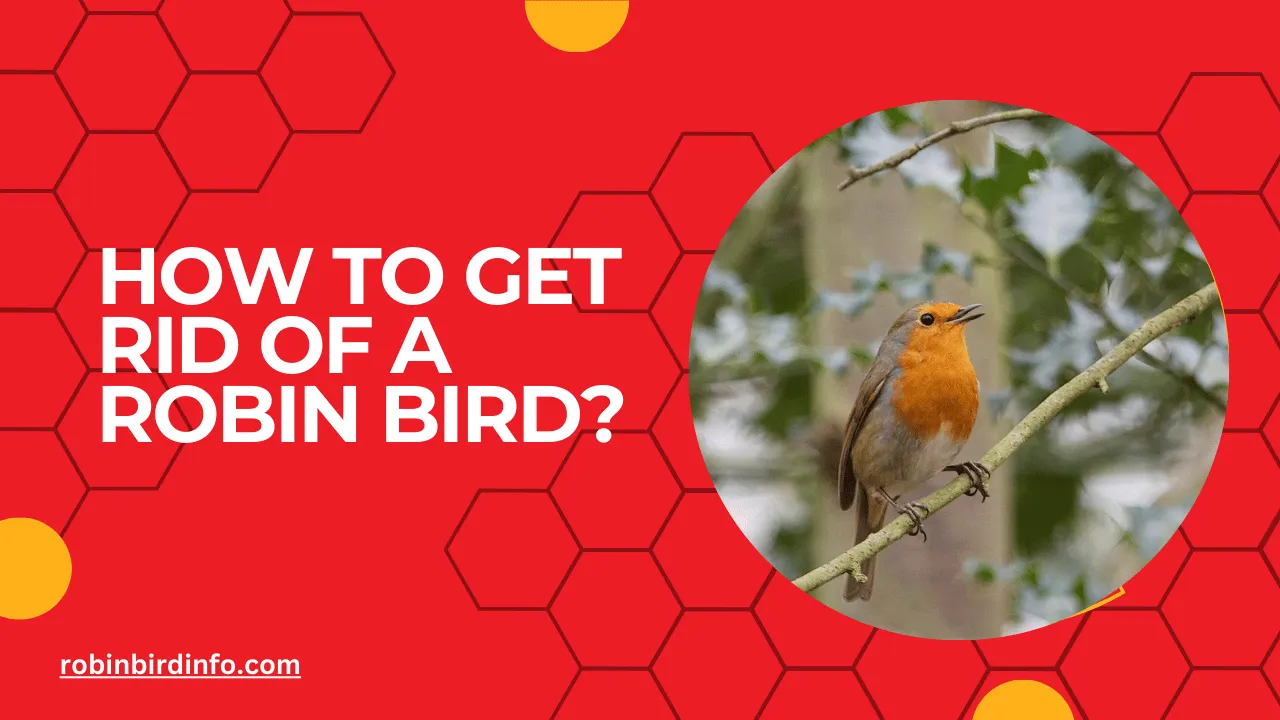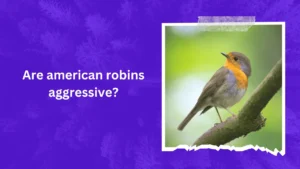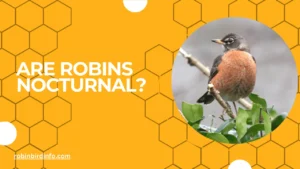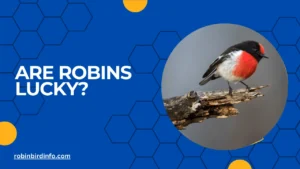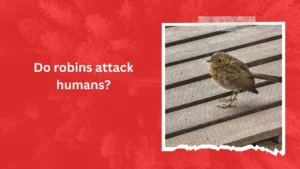We all know the charming image: a bright red Robin perched on a branch, serenading us with its cheerful melody. Robins are often seen as friendly, even beneficial, backyard companions. But what happens when this rosy picture gets a little… well, ruffled?
Have you ever found yourself the target of a dive-bombing Robin? Perhaps your prized berries are constantly disappearing, or maybe their early morning chirping is more like a persistent alarm clock.
While Robins are typically peaceful birds, certain situations can turn them into surprisingly territorial and aggressive creatures. Don’t worry, bird lovers! This doesn’t mean eviction notices for your feathered neighbors.
This blog post delves into the reasons behind Robin aggression and explores humane solutions to co-exist peacefully with these sometimes-feisty songbirds. So, grab a cup of coffee, and get ready to learn how to navigate the delicate dance between appreciating Robins and protecting your backyard haven.
Contents
Understanding Robin Behavior
Robins are highly territorial birds, especially during the breeding season. They will aggressively defend their nesting sites and feeding territories from other birds, including other Robins. Their territorial behavior can sometimes lead to conflicts with humans, particularly if their nesting sites are near human dwellings or gardens.
Nest site selection is crucial for Robins. They prefer sheltered locations, such as dense shrubs, trees, and man-made structures. Factors like food availability, water sources, and predator protection influence their choice of nesting site.
Human activities can attract Robins to specific areas. Gardening, bird feeding, and providing water sources can create favorable conditions for Robins, leading to increased activity in certain areas.
Humane Deterrent Techniques
If you’re experiencing issues with Robins, there are several humane deterrent techniques you can try:
- Visual Deterrents: Using shiny objects, scarecrows, or reflective tape can scare away Robins. However, these methods may lose effectiveness over time, as Robins can habituate to them.
- Auditory Deterrents: Playing distress calls or loud noises can temporarily deter Robins. However, it’s important to use these methods judiciously, as they can also disturb other birds and wildlife.
- Physical Barriers: Using physical barriers like netting or bird spikes can prevent Robins from accessing specific areas, such as balconies or window ledges.
Habitat Modification
To discourage Robins from specific areas, you can modify the habitat to make it less attractive:
- Removing Attractants: Remove food sources, water sources, and nesting materials from the area. This can reduce the appeal of the site for Robins.
- Pruning Trees and Shrubs: Pruning can reduce the number of potential nesting and roosting sites for Robins.
- Creating Less Inviting Environments: Removing clutter, debris, and potential nesting materials can make the area less attractive to Robins.
Non-Lethal Trapping and Relocation
Trapping and relocating Robins is not recommended as it can cause stress and harm to the birds. Additionally, it is important to consider the ethical implications of such practices.
If you must trap and relocate Robins, it is crucial to obtain necessary permits and follow legal guidelines. It is also important to release the birds in suitable habitats and far away from the original location.
Coexistence and Conservation
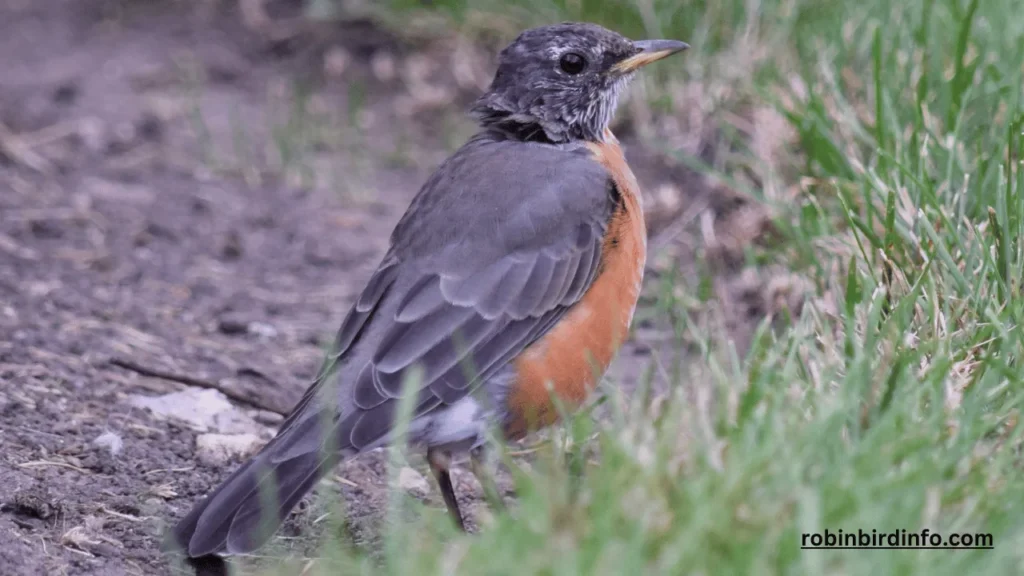
Rather than trying to eliminate Robins, it’s important to find ways to coexist peacefully with these birds. By understanding their behavior and implementing humane deterrents, you can minimize conflicts.
Promoting bird-friendly practices can help to protect Robin populations and their habitats. Planting native plants, providing clean water sources, and avoiding the use of harmful pesticides can create a healthy environment for birds.
If you are experiencing significant problems with Robin behavior, it’s advisable to consult with wildlife experts or pest control professionals for tailored advice and solutions.
Conclusion
By understanding Robin behavior and employing humane deterrents, it is possible to coexist peacefully with these birds. It’s important to remember that Robins play a vital role in ecosystems, and we should strive to protect them and their habitats. By adopting a humane and sustainable approach, we can minimize conflicts and ensure the well-being of both humans and wildlife.
FAQ’s
Why are Robins so territorial?
Robins are highly territorial, especially during the breeding season. They defend their nesting sites and feeding territories aggressively to ensure the survival of their offspring.
How can I deter Robins from my garden without harming them?
There are several humane methods to deter Robins, including using visual deterrents like shiny objects or scarecrows, creating less inviting environments by removing food and water sources, and using physical barriers to prevent access to specific areas.
Is it legal to trap and relocate Robins?
In many regions, trapping and relocating Robins is illegal without proper permits. It’s essential to check local regulations and seek advice from wildlife experts before attempting any such action.
What are some natural predators of Robins?
Robins face various predators, including cats, hawks, and snakes. However, human activities, such as habitat loss and pesticide use, can also pose significant threats to their populations.
How can I protect my plants from Robins?
To protect your plants from Robins, you can use bird netting to cover vulnerable plants, use scare tactics like shiny objects or loud noises, or provide alternative food sources for the birds.
Is it harmful to feed Robins?
While feeding Robins can be enjoyable, it’s important to avoid overfeeding them. Excessive feeding can lead to unhealthy weight gain and dependence on human-provided food.

